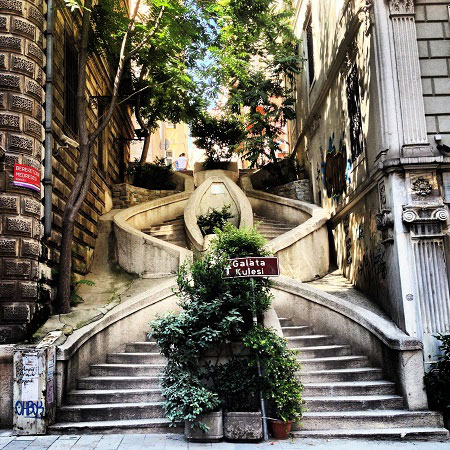"During World War II, the Nazis built a concentration camp in the city of Terezin in Czechoslovakia. In the Theresienstadt Concentration Camp, as they called it, tens of thousands of Jews were imprisoned, among them also artists and musicians. Despite poor living conditions, where even medication was forbidden, some of the composers managed to resist by continuing to compose music. Among these composers were some bright talents, such as Gideon Klein, Viktor Ullmann, and Pavel Haas, who, even before they were transferred to the camp, had been experiencing suppression, not being allowed to perform their art. These brave composers, who chose life in the face of death, were able to transform the strict musical formation they acquired during their education into a powerful positive resistance in the Concentration Camp in Terezin. When I examined their compositions closely, I saw that all three composers were able to transform themselves through music day in day out and every minute of their life in an environment full of cruelty and violence.
Both the discipline they received from their families, which also had to do with the geography in which they were raised, and the strict discipline required by the music schools to which they belonged enabled them to discover and solidify the positive resistance within and create their own unique musical language.
Upon learning something new, the human brain activates a region which has not been active before. While listening to music, we simultaneously perceive thoughts and emotions through melody and rhythm, which triggers certain sensations and these sensations are absolutely felt in the body. While performing, a performer activates the left and the right brain at the same time. If we go one step further, creating music activates multiple parts of the brain simultaneously and forms new active regions in the brain. This creative process, where a mixture of several emotions and thoughts are in play, causes the brain to expand remarkably. Composers who are aware of the creative process and who compose with such an awareness of their creation observe that this approach contributes to their life in general. This is because they have learned, in a way, to “travel” through the act of creation, without recourse to physically changing their actual location. In other words, they have earned the license to use the same creativity in other facets of their life. This earns them great flexibility.
As a musician and music therapist, I have been led by the compositions I have been working on to ask the question: How can we develop our own positive resistance by holding on to the positive resistance that music or our musical talents provide us?"
Renan Koen, pianist / composer / soprano / music therapist www.renankoen.com
Contact information for schools to participate in “Holocaust Reality and Positive Resistance”, the music therapy workshop led by Renan Koen:
E-mail: This email address is being protected from spambots. You need JavaScript enabled to view it.
Phone: 0212 229 26 33




